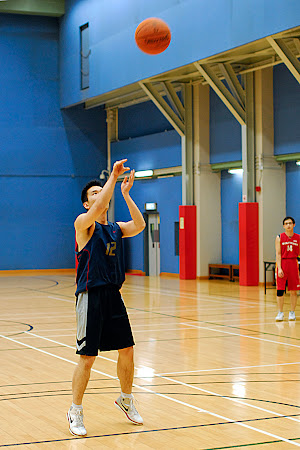(Below is the FREE THROWS section in FIBA Basketball Statisticians’ Manual 2009)
 A free throw attempt (FTA) is charged to a player when that player shoots a free throw unless there is a violation by a defensive player and the shot misses. That is, a player should not be charged for an FTA that is influenced by the illegal actions of an opponent, unless the shot results in a free throw made (FTM).
A free throw attempt (FTA) is charged to a player when that player shoots a free throw unless there is a violation by a defensive player and the shot misses. That is, a player should not be charged for an FTA that is influenced by the illegal actions of an opponent, unless the shot results in a free throw made (FTM).
An FTM is charged to a player any time a free throw attempt by that player results in a score of one point being awarded.
If there is a violation during the free throws, the statistician should very clearly observe what the officials are awarding, who the violation was called on and what the result of the call is. The following statistics apply:
When a player on the defensive team commits a violation
If the free throw is successful, the score will count despite the defensive violation, so charge the free throw shooter with an FTA and an FTM.
If the free throw misses, do not charge the free throw shooter with an FTA because they will be given a substitute free throw. Ignore the missed free throw on which the violation occurred as it is nullified by the defensive player’s violation. Charge an FTA (and an FTM if successful) for the substitute free throw.
When the shooter commits a violation
If the free throw is successful, it will be cancelled.
In all cases, irrespective of whether the free throw is the first, second or third of a series, an FTA is charged to the shooter. Examples of a shooter’s violation are:
- The ball fails to hit the ring.
- The shooter takes too long to attempt the shot.
- The shooter steps on or over the free throw line before the ball hits the ring.
- The shooter fakes a free throw.
If the free throw was the last of a series, the defensive team will be awarded possession out-of-bounds. Charge the defensive team with a team rebound.
When a team-mate of the shooter commits a violation
The officials will not cancel a successful free throw when an offensive player violates so charge an FTA and an FTM to the free throw shooter.
If the free throw misses, the free throw shooter is still charged with an FTA, because had the shot been made, it would have counted. If the free throw was the last of a series, the defensive team will be awarded possession out-ofbounds. Charge the defensive team with a team rebound.
Summary
- If a substitute free throw is awarded for a defensive player’s violation, ignore the original missed free throw and record the statistics for the substitute free throw.
- If an offensive player (including the shooter) commits a violation, charge an FTA.
In all of the above situations, NO turnovers have occurred because the offensive team is considered to have made an attempt at a free throw goal (see the definition of turnovers).
If a wrong player is attempting a free throw, the FTA as a result of the error and all activity involved therein shall be cancelled unless there are technical, unsportsmanlike or disqualifying fouls called during the activity after the error. The game will be resumed after the correction of the error. All FTM’s or FTA’s charged to the wrong shooter shall be nullified.
If a technical foul has resulted in free throws being taken immediately before the start of a period, the FTA (and FTM if successful) should be counted in the new period. This is regarded as a foul during an interval of play and penalised as if it had occurred during the period that follows the interval.
Example
A1 shoots a free throw and during the shot B3 commits a free throw violation. (a) The free throw is made or (b) the free throw misses.
(a) A1 is charged with an FTA and an FTM. (b) Do not charge A1 with an FTA – a substitute free throw will be awarded.